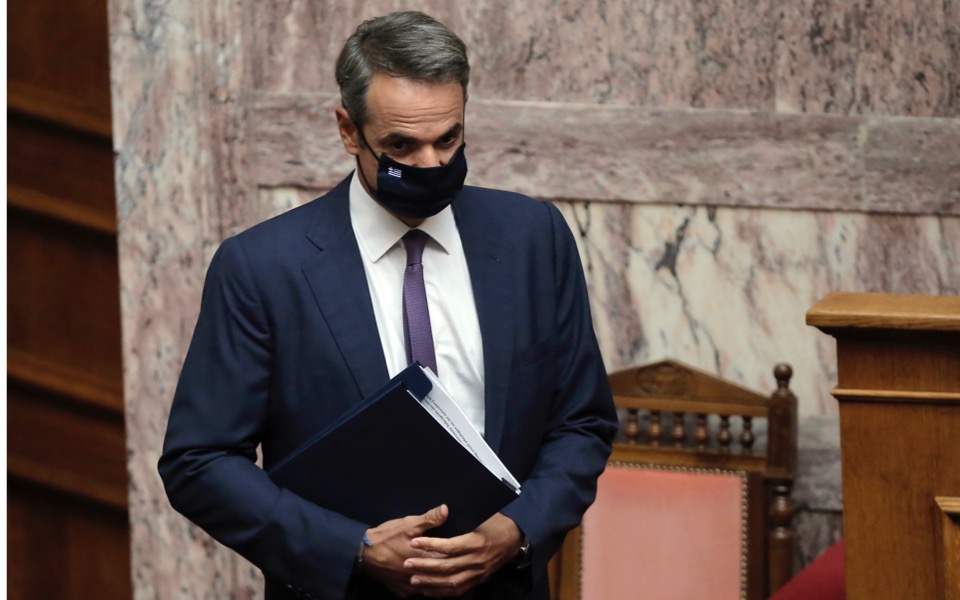Credibility under pressure

Yes, Prime Minister Kyriakos Mitsotakis’ government has been unfortunate in having to deal with the huge problems of the pandemic, the Greek-Turkish crisis, the economic and social impact of these, as well as the migration crisis, which had already grown to dangerous proportions before the conservatives were elected last summer.
Its initial response to these and other more chronic problems showed it to be reliable and many felt immense relief that this confluence of problems fell to this government rather than to the indescribable administration of the previous SYRIZA-Independent Greeks coalition. Reality, however, is not shaped only by the excuses afforded by misfortune or positive reactions to negative developments. It is also shaped by mistakes and oversights, as well as by the policies and attitudes of foreign players, especially so when it comes to the Greek-Turkish and refugee crises.
In this sense, the events at Moria have been a serious blow to the government. First, because it failed to predict the danger of allowing the abysmal conditions at the camp to persist. Second, because it failed to control groups within the camp that are accustomed to violence and were possibly being encouraged by outside factors. And third, because it did not stand up to local reactions in a more forceful manner. In short, the government was willfully blind to a dangerous – yet admittedly extremely difficult – situation and now faces the daunting task of putting things to right, without any guarantees that it will be successful.
The prevailing conditions have not really changed, and acceptable solutions are now even harder to achieve. As far as European solidarity and the prime minister’s hope that the destruction of Moria would awaken European sensibilities are concerned, the fact that only 10 countries stepped forward to host just 400 unaccompanied minors is all the answer we need. (Germany has offered to take in more than 1,500 migrants since the writing of this article.)
The government’s credibility has also come under fire over the issue of Pavlos Polakis’ immunity from prosecution. The former minister is not just any SYRIZA official – his attitude provoked the indignation of New Democracy officials and citizens as few others. His comments last year that two or three of his political rivals should go to prison in order to secure SYRIZA the election should still rankle. After all, the lifting of his immunity concerns a legal dispute with a citizen and had already been approved by the relevant parliamentary committee before it was put to a vote in the plenary.
The development matters because more than half of New Democracy’s MPs voted against Polakis’ immunity being lifted, thus protecting him from the accusations against him. Each of these MPs doubtless has an excuse for their vote, but the real question is whether this was the result of poor coordination, a mini-uprising in party ranks intended to send some kind of message to the prime minister, a circling of the wagons for a fellow MP or a decision of the party leadership.
Finally, on the Greek-Turkish crisis, the government is genuinely trying to bolster the country’s position and build a shield against Turkish provocations. However, it also needs to start taking a more objective view of the moves made by international players and get a better reading of Turkish President Recep Tayyip Erdogan’s apparent intention to push the issue as far as it will go.
For example, was US Secretary of State Mike Pompeo’s recent visit to Nicosia an expression of support? Or was he there to chide Cyprus over accepting a visit by Russian Foreign Ministry Sergey Lavrov and over its insistence on linking European sanctions against Turkey to those against Belarus?





